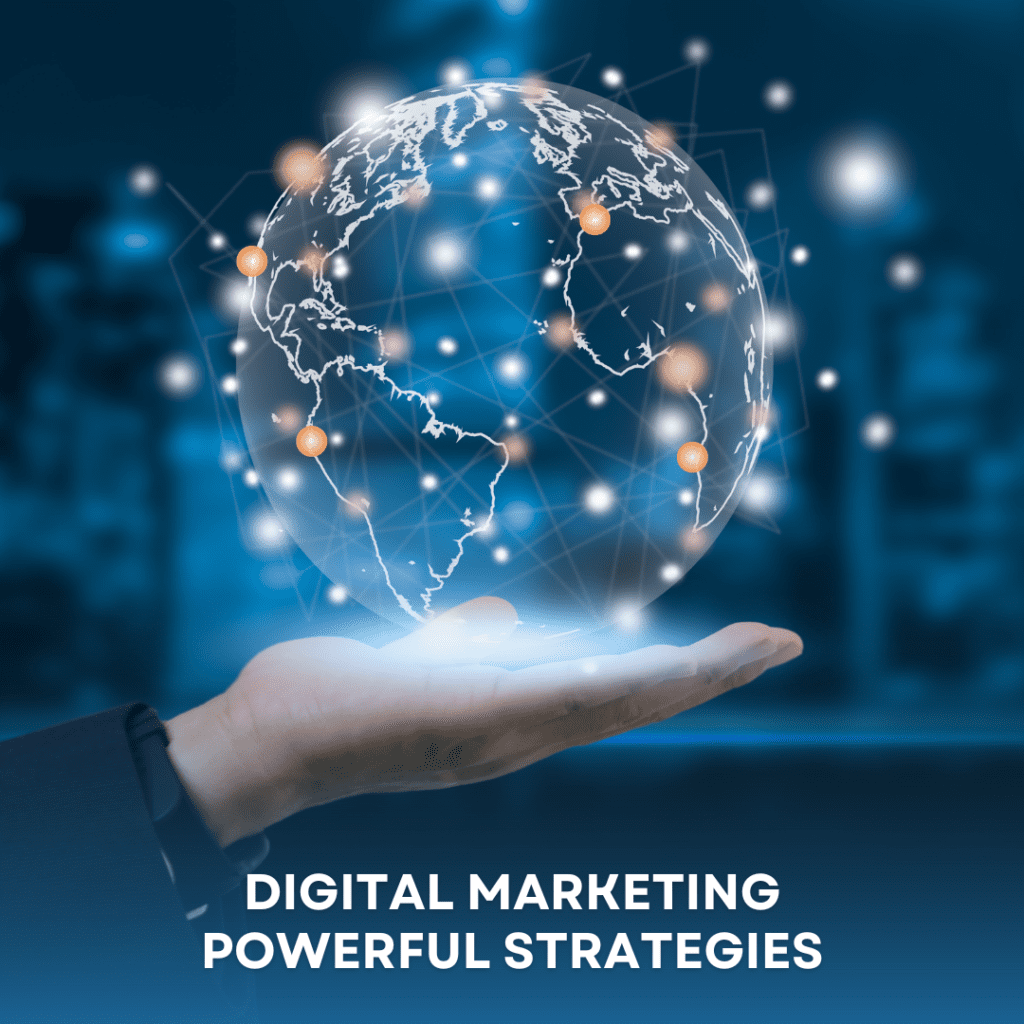What is Digital Marketing?
Digital marketing refers to the use of online channels, technologies, and strategies to promote products, services, or brands to a target audience. It leverages digital platforms such as search engines, social media, email, websites, and mobile apps to connect with potential customers. Unlike traditional marketing, digital marketing offers data-driven insights, enabling businesses to track performance, optimize campaigns, and enhance customer engagement in real time.
Top 7 Key Components of Digital Marketing
- Search Engine Optimization (SEO) – Enhancing website visibility on search engines like Google.
- Pay-Per-Click (PPC) Advertising – Running paid ads on platforms like Google Ads and social media.
- Content Marketing – Creating valuable content such as blogs, videos, and infographics to attract audiences.
- Social Media Marketing (SMM) – Promoting brands through platforms like Facebook, Instagram, LinkedIn, and TikTok.
- Email Marketing – Sending targeted emails to nurture leads and retain customers.
- Affiliate Marketing – Partnering with influencers and affiliates to drive sales.
- Marketing Automation – Using AI-driven tools to streamline campaigns and enhance customer experience.
Digital marketing is essential in today’s business landscape, allowing brands to reach a global audience, personalize customer interactions, and measure performance with precision.
Why digital marketing is important in Nowadays and How?
In today’s digital age, digital marketing is no longer an option—it’s a necessity for businesses looking to thrive. With the rise of internet usage, social media, and e-commerce, businesses must adapt to new ways of reaching and engaging customers. Here’s why digital marketing is crucial and how it works effectively. PPC Strategies: yourwebsite.com/blog/ppc-strategies

Google Digital Marketing Guide – https://www.google.com/digitalgarage/
Digital Marketing, Strategies
Online,
Marketing Tips SE
PPC Tactics Social Media Marketing
Content Marketing
Best Practices Email Marketing
Optimization Influencer Marketing Growth
Why Digital Marketing is Important in Today’s World, here 5 important steps:
- Global Reach & Accessibility
- Unlike traditional marketing, digital marketing allows businesses to reach audiences worldwide.
- Small businesses can compete with large corporations by targeting the right customers online.
- Cost-Effective Marketing
- Digital marketing campaigns (SEO, PPC, and social media ads) cost less than traditional methods like TV or print ads.
- Pay-Per-Click (PPC) advertising ensures you only pay for actual engagement.
- Data-Driven Decision Making
- Tools like Google Analytics and Facebook Insights help businesses track performance.
- Marketers can analyze customer behavior and refine strategies accordingly.
- Personalization & Customer Engagement
- AI-powered tools help businesses personalize messages based on user preferences.
- Email marketing and chatbots enhance direct customer interactions.
- Mobile & Social Media Dominance
- Over 5 billion people use mobile devices, making mobile-friendly marketing crucial.
- Social media marketing (Facebook, Instagram, TikTok) helps brands engage with users in real time.

The Future of Digital Marketing: Best 8 steps of Trends That Will Dominate 2025
In the ever-evolving landscape of digital marketing, staying ahead of emerging trends is crucial for businesses looking to maintain a competitive edge. As we step into 2025, innovative strategies and cutting-edge technologies are reshaping the way brands interact with consumers. Here are the most impactful trends set to dominate digital marketing in the coming year.
Social Media Marketing: yourwebsite.com/social-media-marketing
Digital Marketing Courses: yourwebsite.com/courses
1. Artificial Intelligence: The Game Changer in Digital Marketing
Artificial Intelligence (AI) has been transforming digital marketing strategies for years, and in 2025, it will reach new heights. From AI-driven content creation to chatbots and predictive analytics, businesses will leverage AI to personalize customer interactions and enhance user experiences. Machine learning algorithms will further refine targeted advertising, ensuring that marketing efforts are data-driven and hyper-relevant.
2. Voice Search Optimization: The Next SEO Frontier
With the increasing adoption of smart assistants like Alexa, Siri, and Google Assistant, optimizing for voice search will become a necessity. Unlike traditional SEO, voice search focuses on conversational queries and long-tail keywords. Businesses must adapt their content strategies to cater to natural language processing (NLP) and user intent, ensuring they rank higher in voice search results.
3. Interactive Content: Engaging Audiences Like Never Before
Static content is no longer enough to capture user attention. In 2025, interactive content such as quizzes, polls, augmented reality (AR) experiences, and shoppable posts will dominate digital marketing strategies. Interactive elements not only engage users but also boost conversion rates by providing a more immersive experience.
4. Video Marketing: Short-Form Content Rules
The demand for short-form video content is skyrocketing, driven by platforms like TikTok, Instagram Reels, and YouTube Shorts. Brands that embrace video marketing will benefit from higher engagement rates, improved brand awareness, and increased audience retention. Live streaming and behind-the-scenes content will further strengthen customer trust and brand loyalty.
5. The Rise of Influencer Marketing 2.0
Influencer marketing is evolving beyond celebrity endorsements. In 2025, micro-influencers and nano-influencers will play a crucial role in marketing campaigns. These influencers have higher engagement rates and stronger community bonds, making them more effective in driving authentic brand conversations. Brands will prioritize long-term partnerships over one-off promotions to build trust and credibility.
6. Privacy-First Marketing: The End of Third-Party Cookies
With increasing concerns over data privacy and regulatory changes, marketers must shift towards first-party data collection. The demise of third-party cookies means brands will need to rely on customer relationship management (CRM) tools, email marketing, and interactive data-gathering methods to create personalized experiences while maintaining consumer trust.
7. The Metaverse and Immersive Digital Experiences
The metaverse is shaping the future of digital marketing by providing immersive virtual experiences. Brands are investing in virtual reality (VR) and augmented reality (AR) to engage customers in unique ways. From virtual showrooms to interactive brand experiences, the metaverse offers limitless possibilities for businesses to connect with their audience.
8. Social Commerce: The Future of Online Shopping
Social media platforms are rapidly transforming into e-commerce hubs. With features like Instagram Shops, Facebook Marketplace, and Tik Tok Shopping, brands can sell products directly through social media. This seamless shopping experience enhances customer convenience and boosts sales by reducing friction in the purchasing process.
Conclusion
As digital marketing continues to evolve, businesses must adapt to new technologies and consumer behaviors. Whether through AI-driven personalization, immersive experiences, or privacy-first strategies, the key to success in 2025 lies in embracing innovation. Marketers who stay ahead of these trends will not only survive but thrive in the ever-changing digital landscape.
https://www.canva.com/design
Semrush Digital Marketing Tools – https://www.semrush.com/



I am really impressed with your writing skills as well as with the format for your blog. Is that this a paid theme or did you modify it your self? Anyway stay up the excellent quality writing, it’s uncommon to look a great weblog like this one nowadays!
Hi there to all, for the reason that I am genuinely keen of reading this website’s post to be updated on a regular basis. It carries pleasant stuff.
**mindvault**
mindvault is a premium cognitive support formula created for adults 45+. It’s thoughtfully designed to help maintain clear thinking
**glpro**
glpro is a natural dietary supplement designed to promote balanced blood sugar levels and curb sugar cravings.
**zencortex**
zencortex contains only the natural ingredients that are effective in supporting incredible hearing naturally.
**mitolyn**
mitolyn a nature-inspired supplement crafted to elevate metabolic activity and support sustainable weight management.
**prodentim**
prodentim an advanced probiotic formulation designed to support exceptional oral hygiene while fortifying teeth and gums.
**yusleep**
yusleep is a gentle, nano-enhanced nightly blend designed to help you drift off quickly, stay asleep longer, and wake feeling clear.
**vitta burn**
vitta burn is a liquid dietary supplement formulated to support healthy weight reduction by increasing metabolic rate, reducing hunger, and promoting fat loss.
**synaptigen**
synaptigen is a next-generation brain support supplement that blends natural nootropics, adaptogens
**nitric boost**
nitric boost is a dietary formula crafted to enhance vitality and promote overall well-being.
**glucore**
glucore is a nutritional supplement that is given to patients daily to assist in maintaining healthy blood sugar and metabolic rates.
**wildgut**
wildgutis a precision-crafted nutritional blend designed to nurture your dog’s digestive tract.
**pineal xt**
pinealxt is a revolutionary supplement that promotes proper pineal gland function and energy levels to support healthy body function.
**breathe**
breathe is a plant-powered tincture crafted to promote lung performance and enhance your breathing quality.
Your points are well-articulated and logical.
Thanks for sharing. I read many of your blog posts, cool, your blog is very good. https://www.binance.com/register?ref=IHJUI7TF
I don’t think the title of your article matches the content lol. Just kidding, mainly because I had some doubts after reading the article.
Can you be more specific about the content of your article? After reading it, I still have some doubts. Hope you can help me.
Your point of view caught my eye and was very interesting. Thanks. I have a question for you. https://accounts.binance.com/ka-GE/register-person?ref=ILE8IH9H
I don’t think the title of your article matches the content lol. Just kidding, mainly because I had some doubts after reading the article.
Can you be more specific about the content of your article? After reading it, I still have some doubts. Hope you can help me.
I don’t think the title of your article matches the content lol. Just kidding, mainly because I had some doubts after reading the article. https://www.binance.info/register?ref=IHJUI7TF
Your article helped me a lot, is there any more related content? Thanks! https://accounts.binance.info/fr/register?ref=T7KCZASX
Your article helped me a lot, is there any more related content? Thanks! https://accounts.binance.com/register-person?ref=IHJUI7TF
Can you be more specific about the content of your article? After reading it, I still have some doubts. Hope you can help me. https://www.binance.com/register?ref=IXBIAFVY
I don’t think the title of your article matches the content lol. Just kidding, mainly because I had some doubts after reading the article. https://www.binance.com/en/register?ref=JHQQKNKN
Can you be more specific about the content of your article? After reading it, I still have some doubts. Hope you can help me. https://accounts.binance.info/hu/register?ref=IQY5TET4
Reading your article helped me a lot and I agree with you. But I still have some doubts, can you clarify for me? I’ll keep an eye out for your answers.
Your point of view caught my eye and was very interesting. Thanks. I have a question for you. https://accounts.binance.com/si-LK/register?ref=LBF8F65G